
Path of Exile 2 continues the legacy of its predecessors while introducing intricate systems designed to engage players for countless hours. Among these systems is a noteworthy interaction with NPC characters. Following the successful early access release, many newcomers may find these systems a bit intimidating, especially given the minimal tutorial support available. For instance, early-game NPCs offer critical options that significantly impact gameplay, yet these features can seem obscure initially.
The revamped design philosophy in Path of Exile 2 features a considerably reduced loot drop rate from defeated enemies. This encourages players to leverage NPCs and crafting mechanics heavily. Throughout Act 1, players will gradually unlock various NPC functionalities, each contributing uniquely to character enhancement and providing essential quality-of-life features that beginners often overlook.
When To Disenchant, Sell, Or Scavenge
What To Do With Unused Pieces of Gear
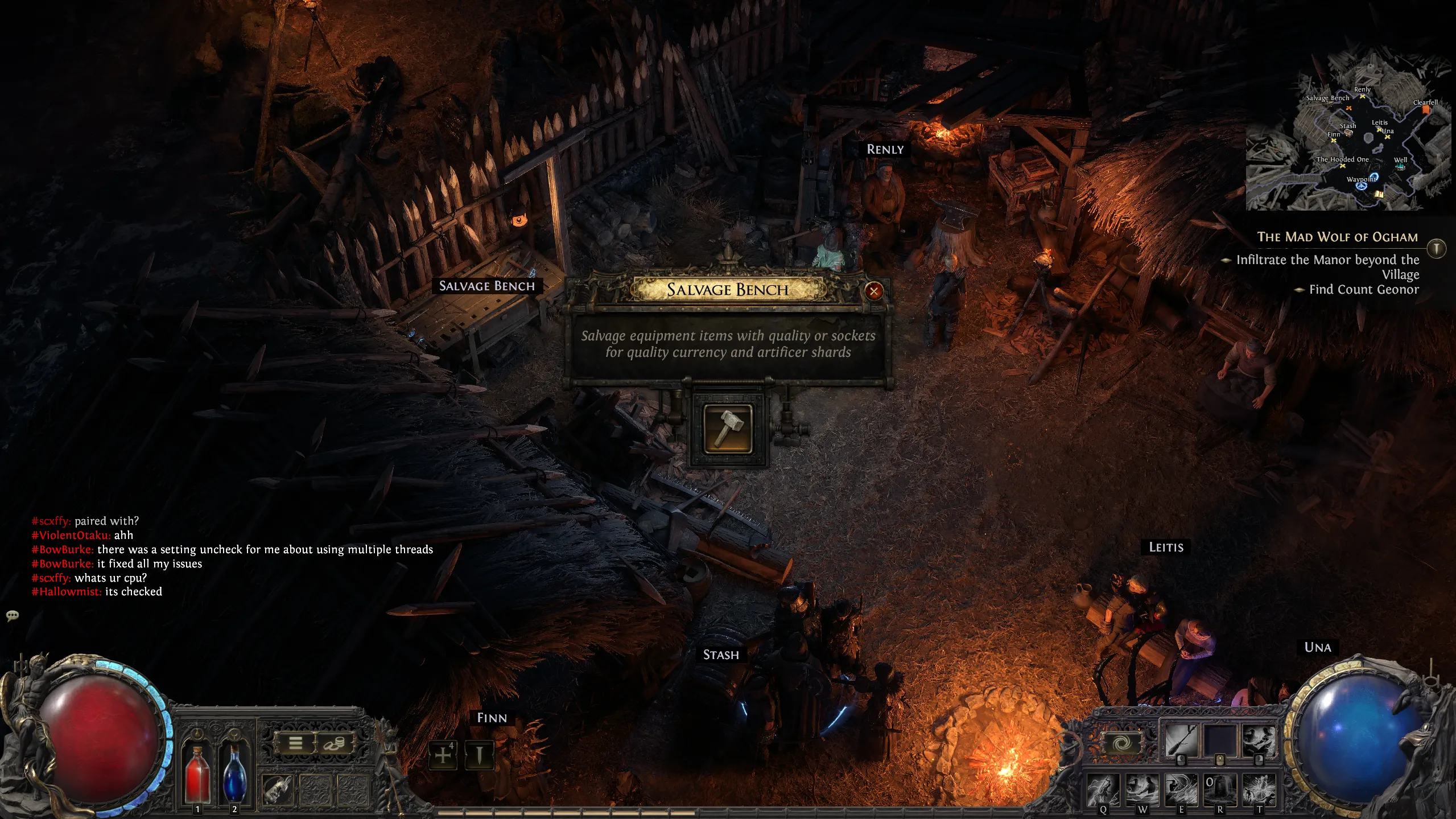
Upon reaching the first settlement in PoE 2, known as the Clearfell Encampment, players will face the decision of handling unused gear. The most straightforward approach is to sell unwanted items. This can be easily done by dragging the gear into a vendor’s inventory. As you progress through Act 1, additional options become available, though many of these are not well communicated. For example, Una offers a disenchantment service that converts unwanted items into shards for crafting, while later in the Act, players can access the scavenging bench to salvage items with socket slots or quality modifiers.
Understanding when to use each option is crucial. Generally, white items should be sold to vendors as they cannot be disenchanted. Meanwhile, magic and rare items are best disenchanted, with every ten disenchantments of a specific rarity rewarding players with an upgrade item. Finally, any gear possessing a quality modifier or socket should be scavenged, irrespective of its quality. The scavenging process mirrors disenchanting: salvaging ten items with those features yields rewards to enhance your own gear.
How To Use The Hooded One
The Hooded One Has Major Quality Of Life Features
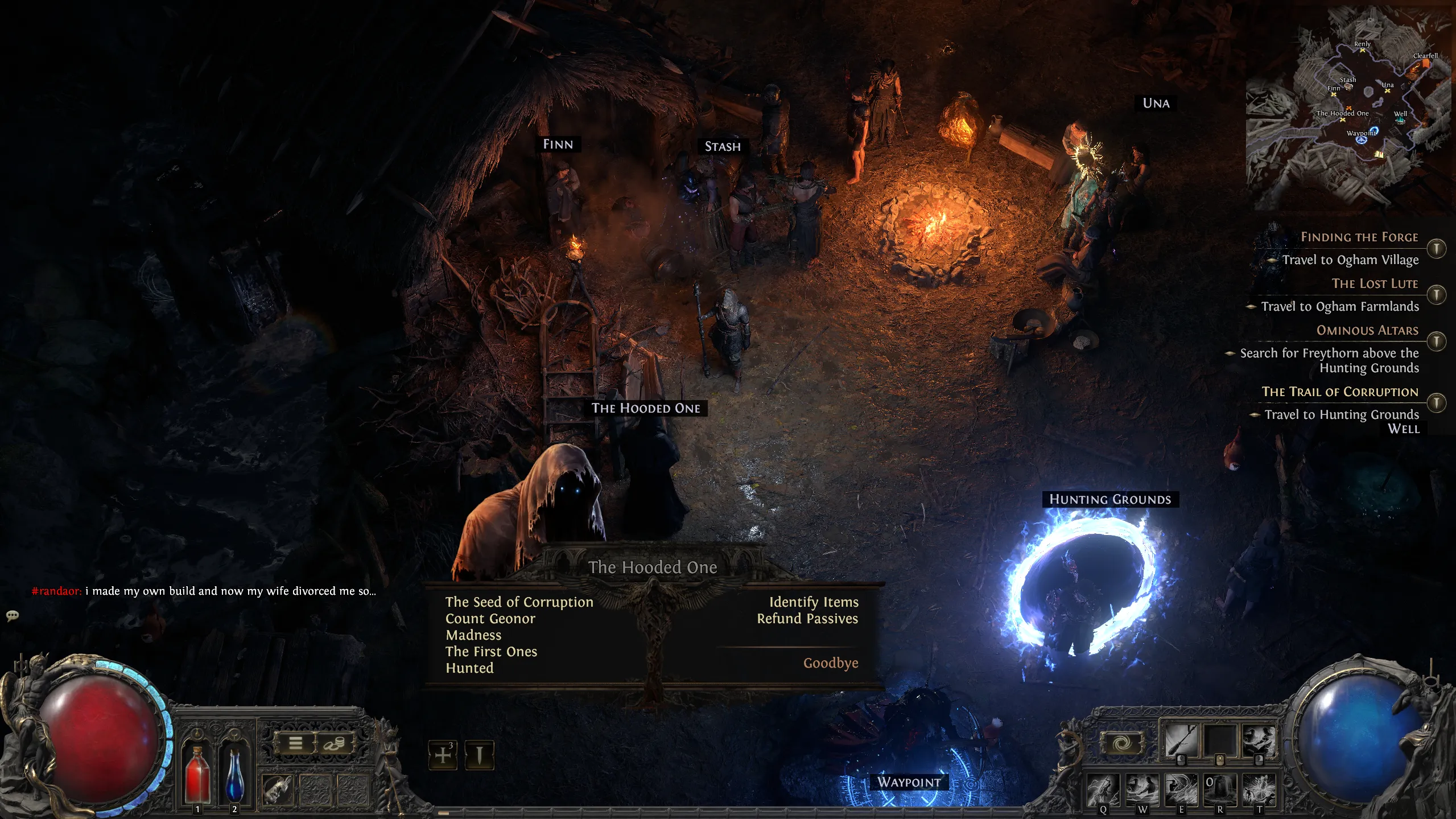
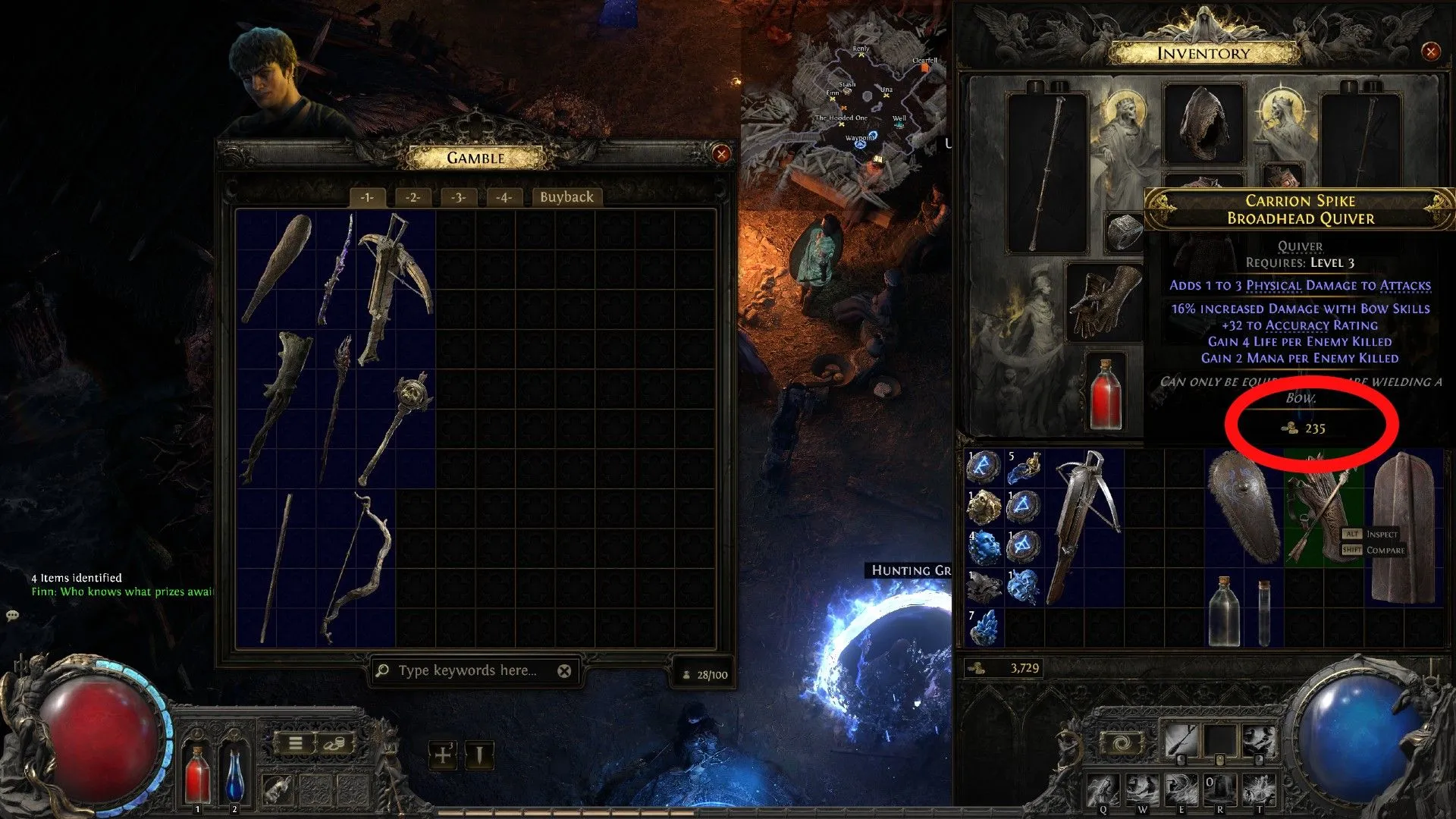
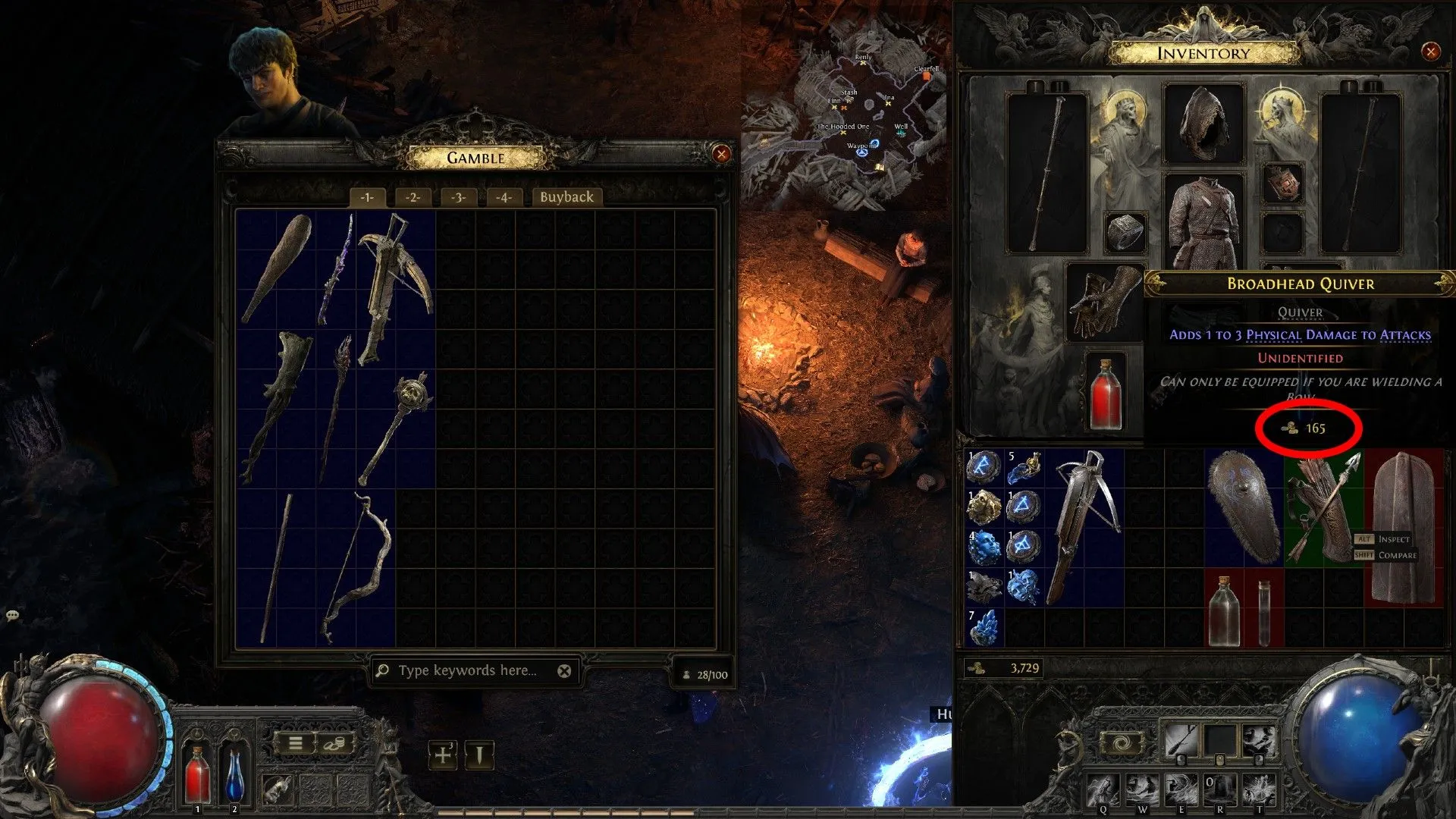
Early in Act One, players can unlock an NPC known as The Hooded One. This character provides two remarkable functionalities. Primarily, rather than identifying items one at a time with scrolls of wisdom, The Hooded One offers the ability to automatically identify all gear in your inventory. This feature is both time-efficient and cost-free—an invaluable asset for multiplayer sessions, significantly reducing downtime spent in town.
To sell items for gold effectively, players must identify them via The Hooded One first. The second functionality is the option to refund points allocated on the passive skill tree. The gold cost for this service increases with player level; at level 12, the refund cost is 124 gold per point, while at level 15, it rises to 181 gold. Though completely restructuring the skill tree at higher levels incurs substantial costs, the early and mid-game offers sufficient flexibility for players to adjust builds without excessive financial strain.
How To Use NPC Shops
Proper Shop Usage Can Drastically Increase Power Levels
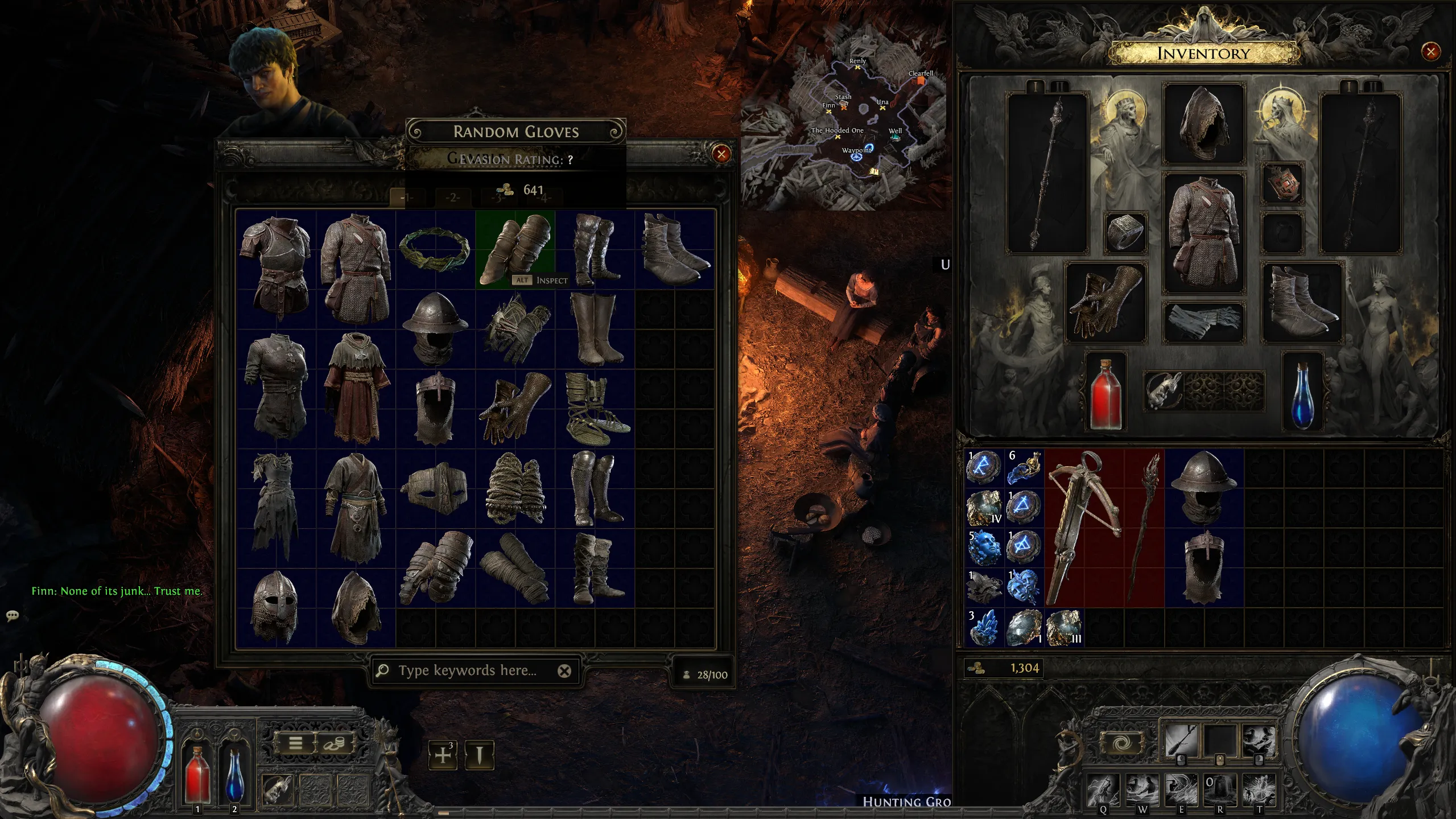
Navigating NPC shops can be a game-changer for acquiring loot, especially when combined with crafting elements. Each NPC sells different categories of items: Una specializes in magic items and flasks, Renly offers weapons and armor, while Finn introduces a gambling mechanic. The gear available in each shop scales with player level, meaning that the stock resets whenever players gain a level. It is advisable to check these shops every time you level up to ensure all potential gear gaps are addressed.
Pay close attention to items that come with robust starting modifiers, as these can be easily upgraded to rare quality. Discovering a beneficial magic item, particularly a weapon, can significantly bolster your character’s capabilities. For example, I once acquired a rare quarter staff from Renly for approximately 2,000 gold, effectively tripling my DPS during Act One. Such enhancements are crucial as you progress through the considerably heightened difficulty levels in the game.
The gambling feature involves purchasing a base item from Finn, which is then randomly transformed into a new item. Gambling is particularly useful when you require specific gear to fill slots or enhance existing equipment that the regular shopkeepers might not offer. While gambling carries inherent risks, successfully obtaining a rare item can lead to significant savings. Notably, the cost for gambling is roughly one-third the price of acquiring a magic item from Renly or Una. Effectively utilizing each NPC is among the best strategies for increasing your character’s power in Path of Exile 2.




Leave a Reply